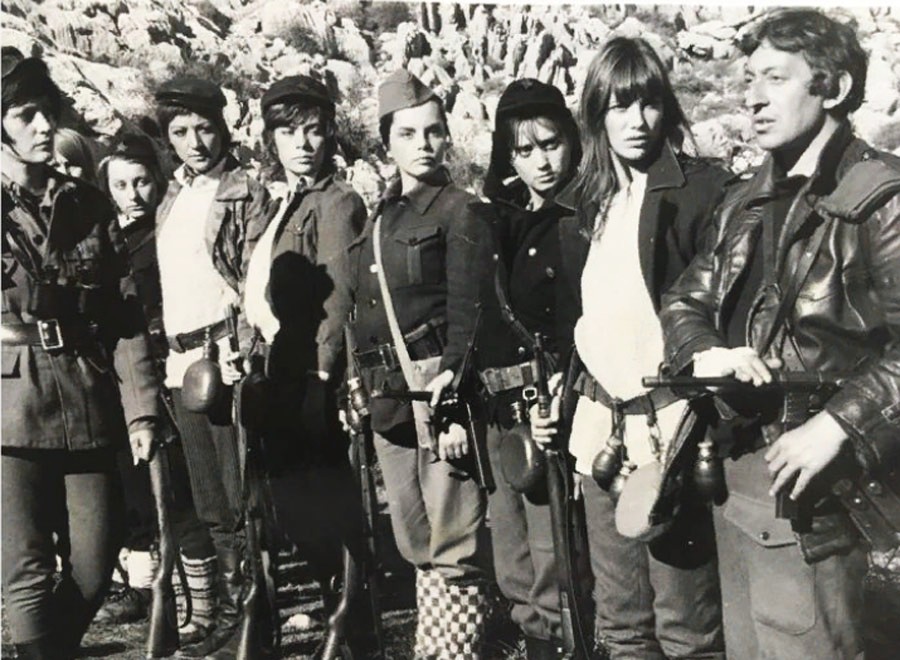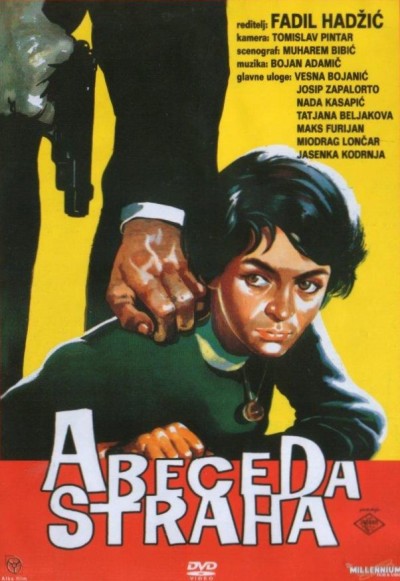 ★★
★★
“I only see eight girls…”
The rather salacious title is actually a direct translation of the original Yugoslavian one: it seems to be hinting at an adult movie whose name was A Girl and 19 Sailors. The reality is, naturally, rather different. It’s a war movie, set in the final days of World War II, when the local partisans were fighting the Nazis. A group of women, under the command of Milja (Birkin) are given the task of escorting injured soldiers to safety, including “The Spaniard”/ He’s a partisan leader whom the Germans want to capture, in order to offer him in a prisoner exchange. It helps they have an informant in the partisans, helping them funnel their opponents to a precise location.
It’s a largely by-the-numbers war story, except for most of the protagonists being women. The main exception is Sailor (Gainsbourg), who has two of the partisans fall for him, including the second-in-command, Irena (Rozin). This angle largely negates the surprisingly forward-thinking approach of the plot as a whole, promoting the belief that women are too flighty and easily distracted by matters of the heart to make good soldiers. It’s a shame, as they seem largely competent and able to handle themselves. Well, except for the scene where a bunch of them suddenly decide to go swimming, and are then surprised by the appearance of a German platoon. I rolled my eyes at that a bit as well.
I’m not quite sure what two of France’s leading stars at the time are doing, suddenly appearing in an otherwise very Yugoslavian production. Even a local review seemed perplexed (all hail, Google Translate…), and was equally confounded by the director, who up until that point, had basically made documentaries. He certainly does not appear to have much of a handle on the dramatic elements, generating almost no tension out of what should, one would imagine, have been a good foundation for a thriller. Narrow escapes; fierce gun-battles; tension over the identity of the traitor in their midst. Oh, all of these exist, yet they feel little more than check-marks of obligation, and hardly anything about this will stick in your mind.
After losing a few supporting characters, but nobody of particular note, we reach the finale, where the women are trapped with no apparent escape route. Until, that is, one of them suddenly remembers the existence of a cave offering safe passage. Fortunate amnesia. This is, of course, where we get another expected element – the heroic sacrifice of certain people, mounting a rearguard defense which allows their sisters-in-arms to make their escape, and also reveal the identity of the Nazi informess. The scenery is wild and untamed, and the photography does a decent job of capturing this. The same can’t particularly be said about the characters, as these never become much more than women in uniform. Or not in uniform. That works too.
Dir: Milutin Kosovac
Star: Jane Birkin, Serge Gainsbourg, Spela Rozin, Dina Rutic
a.k.a. Ballade à Sarajevo or Devetnaest djevojaka i jedan mornar





